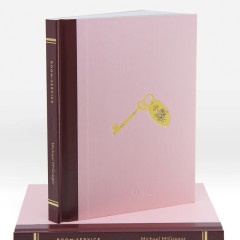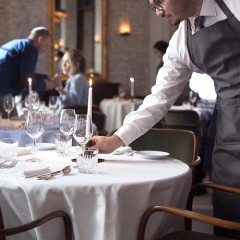
Ah, the "Feminine Mystique." Who women are and what women want has proved one of the most mystified, complicated subjects throughout history. Forever on the edge of cracking, but a truth many may not care to hear.
Perhaps you remember Wednesday Martin from her last whirlwind venture of a book Primates of Park Avenue - a text that turned the Upper East Side upside down, delving into the special, privileged, and pressured microcosm of Manhattan mothers. Having worked as a writer and social researcher for over two decades, Martin's latest page turner, UNTRUE: Why Nearly Everything We Believe About Women, Lust, and Adultery is Wrong and How the New Science Can Set Us Free, will have your eyes widening and face blushing for sure. Speaking with sociologists, anthropologists, and sex researchers, women who'd had affairs, and women who embraced a non-monogamist lifestyle, Martin seeks to set the record straight about the female mind, and libido.

What was the biggest shock or surprise in all of your research?
That women's libidos are no weaker than men's, if we measure arousal and desire correctly. And that women struggle with monogamy more than men do, according to sex research data. It's women, not men, who were "wired" for promiscuity.
I was also shocked to learn most of us don't know the truth about the female body yet! We've put a man on the moon, sent a Rover to Mars, mapped the human genome... and only recently learned the truth about the clitoris. You have to ask yourself, how is this possible?! It's all in UNTRUE.
How did writing this book compare to writing your previous works?
My process is always the same. I find a topic that fascinates me and my friends and colleagues. Then I do a deep dive into the research on the subject--the latest findings and thinking from primatology, anthropology, sociology, medicine, and in this this case sex research. I interview experts and actual women. I do participant-observation, immersing myself in the reality of my topic--in this case, I went to an all-day workshop on "Consensual Non-Monogamy" (mind blowing and eye-opening) and an all women's sex party called Skirt Club (ditto - a wild living laboratory for understanding female sexuality). And then it's just the drudgery and joy of sitting down every day and cranking it out.
Where or how do you fear people may misunderstand your research and your findings?
Data is data. Findings are findings. But sometimes people don't like the message, or it makes them defensive, and they shoot the messenger. When you write on sensational topics, everyone has an opinion, sometimes very passionate ones. That's great, in my view. And it's part of my job. In this instance, that means dealing with assumptions that I am trying to take down monogamy and marriages. I'm not.
What's most important, I think, is helping women get their hands on the latest findings about women and sex and their own sexuality. Women especially want and need permission--not necessarily to cheat or be openly non-monogamous, but for their desires to be normalized. Because sex researchers and other social scientists are finding that women's desires are stronger and weirder and more adventurous than we've yet acknowledged! For example, it's normal for women to want variety and novelty of sexual experience. We tend to shut down sexually even more quickly than men do in a monogamous relationship. Not because we like sex less, but because we don't get the variety and novelty we evolved to desire without some extra effort. UNTRUE really gets into what women need, irrespective of a cultural script that tells them otherwise, and how to get it.
What's the main danger of the social expectations placed on women historically?
When Darwin asserted that females of most species are coy, choosy, and sexually reticent, he really set women up for a fall. The notion that we're "naturally" more monogamous is nonsense. And it makes women feel terrible about themselves. The aim of UNTRUE is to set them free.
Is there anything you were personally hesitant to participate in while conducting research?
I was pretty nervous about going to Skirt Club, which is a play party where many of the women attending are married to or in committed partnerships with men. What do you wear to a very exclusive sex party? How will it feel to be there? I like taking readers with me on these adventures we might otherwise never have.
The words 'guilty' and 'sin' and 'judgment' come up often in the book. What would you point to as the modern day woman's biggest issues with herself?
It's hard to generalize! For example, I met and interviewed women who felt really guilty about their affairs and others who didn't seem to feel bad at all, and relished telling me about them.
I'd say if there's any one overarching issue that unites women in the US right now, it's female autonomy, which is currently under assault from so many directions.
What's the one thing you'd want people to learn about female infidelity?
That it's normal, and that it's normative worldwide. One study of 133 societies found there was not a single one without it.
What does sexual freedom look like for the modern woman?
On a day to day level, I think sexual freedom looks like being able to do what you want with your own body--the most basic form of autonomy --and having sexual encounters in which your orgasm is as important to both of you as his. We would have to be in a very different place politically and socially in the US for people to believe that sex isn't over until the woman has an orgasm!
More generally, I think sexual freedom means feeling physically and emotionally safe enough and being sufficiently entitled enough to have a conversation with a partner about whether you yourself want to be monogamous or not. And being able to revisit that decision over time.
[Photo via Unsplash]


.jpg)
.jpg)



.jpg)
.jpg)
.jpg)


.jpg)

